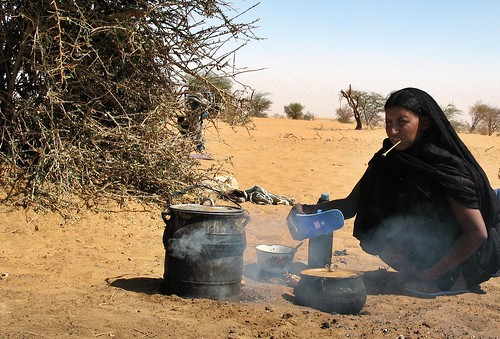Social Organizations
Mali had a very family-based social organization system from women to slaves to kings. The kings were obviously at the top, but most of them like Mansa Musa and Sundiata Keita created an acceptable way of life for everyone. The women weren't at the bottom of the ''pyramid'', like other empires. They were, like other empires, to cook food in tents such as yogurt, butter, cheese, goat milk, dates, and tagila which is a flat bread. They also had to make the clothes and then dye them, weave baskets and take care of the children for the first 12 years of the child's life. Men had a very different daily routine because their day began at sunrise, when they fed and milked the camels and goats before eating breakfast. Their responsibility was to keep their family and livestock alive, which is why they were always looking for water. To keep themselves entertained, men would hold camel races, and at night talk business, tell stories, or sing songs. Children started working pretty early in life. Boys would take care of camels at age 10, which they had to go after if the camels ran away. When boys turned 12, they were apprentices for their uncles to learn about trade, but if his family was wealthy he would be sent to Timbuktu to get a good education. Girls would start cooking with their mothers when they could stir a small stick in a pot of couscous. They never got education and were ready to marry at the age of 13 or 14. The father of the bride had to pay a bride-price which was where he would give the groom's family some sheep or a few horses. The wedding would be held at the groom's aunt's house. Slaves were traded in Northern Africa and Asia for horses, spices, cloth and sometimes weapons. They were a high demand in the Sahara desert because no one really wanted to die in the hot sun. When there were family problems, the patriarch, the oldest family member, would call a family meeting to solve the conflict. Family was very important to the people in Mali, and were considered more valuable than money. The social organization system of Mali was very similar to other empires, but was also very different with the role of the women and how much family was worth.
Picture URL: http://farm2.static.flickr.com/1169/702969367_2cdf8700c4.jpg
Subscribe to:
Comments (Atom)
